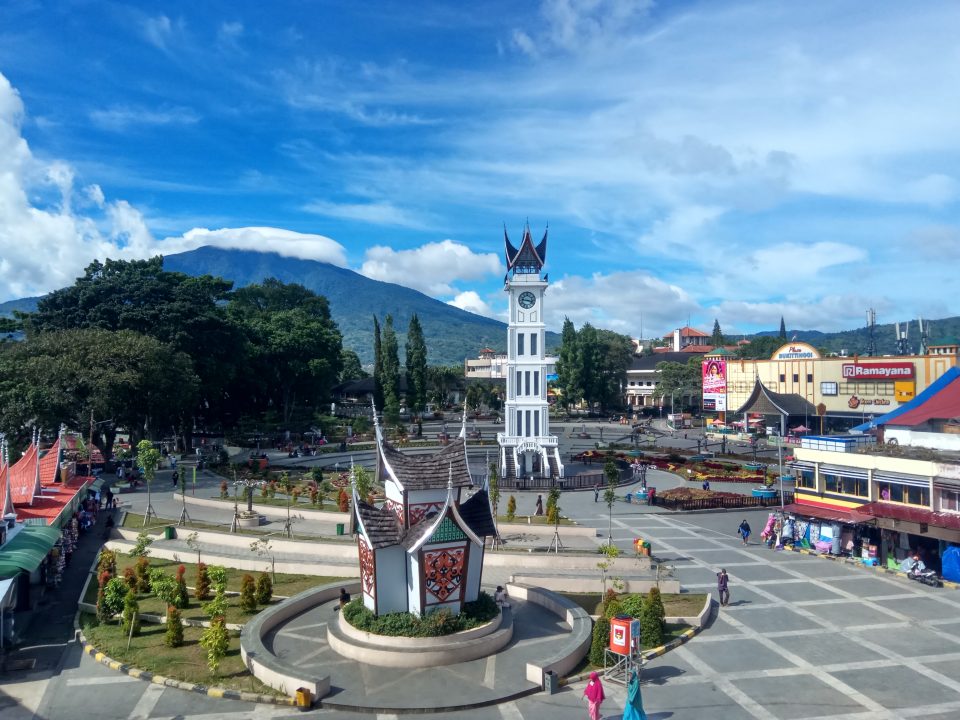The writer is a lecturer at the Faculty of Humanities, Andalas University.
Every time I pay a visit to the city of Bukittinggi, I always come across car parks laden with private cars or tourist buses coming from neighbouring provinces, as can be seen from the vehicle registration plates.


Bukittinggi has long been a favourite tourist city for residents of West Sumatra and its adjacent provinces. Many attribute this blessing to its favourable geographical conditions; cool air, beautiful nature, and yummy dishes. Attractions include Mount Marapi and Mount Singgalang, the clock tower, the Japanese tunnel, Sianok canyon, Kinantan Zoo, and the latest one, the Great Wall of Koto Gadang.
Along with its natural attractions, the real charm of Bukittinggi is bound to its demographic and cultural features. The characteristics of the city’s residents make the city even more appealing. There’s an inclusive nature to the Bukittinggi residents that has played a central role in the city’s draw. By definition, inclusivity is understood as an alacrity to be open and accept something new without having to sacrifice one’s own truth. In my opinion, the inclusiveness of Bukittinggi residents is a consequence of the following three characteristics.
First, there’s a strong business mentality. It is well-known that Bukittinggi residents are famous for their extraordinary business faculties. Unlike other Minangese, they haven’t relied on entrepreneurship as a function of migration to the area; they have chosen to do business in their home town.
Once you get to the city, you will see shophouses lined up along the road, starting from the areas of Padang Lua, Kapeh Panji, and Jambu Aie. Administratively speaking, Padang Lua and Kapeh Panji are parts of the Agam Regency. However, it is hard to deny that the economic growth of the two areas is an effect of their geography, being close to the city of Bukittinggi. Even though they are counted as residents of the Agam district, the people of Padang Lua, Kapeh Panji, and some of Jambu Aie are economically Bukittinggi-centred. Agam and Bukittinggi resemble two sides of a coin: the Bukittinggi Koto Rang Agam, or Bukittinggi is a city for Agam people.
Their choice to be businesspeople makes them live by the principles of “seeking as many friends as possible and reducing as many foes as possible”. For businesspeople, everyone must be respected; they are the market for the products and services they want to sell. The above principles, in many ways, affect the attitude and service the Bukittinggi people give to visitors, meaning visitors are greeted as friends. Their habit of dealing with the diverse consumer behaviours makes the people of Bukittinggi serve and treat visitors as individuals, not as part of the crowd. The necessity of viewing consumers as assets encourages Bukittinggi residents to get used to serving and meeting guests’ requests. Although not all of the city’s residents are in business or are entrepreneurs, such a business mentality when greeting consumers and tourists is commonplace among them.
Second, the cool natural circumstances. The city’s shady nature leads the residents of Bukittinggi to have a cool attitude. When people stay or visit Bukittinggi, many feel they are not in an ordinary city, marked by individualistic and naive behaviour. The atmosphere is of a beautiful village and is dominant even though you are in tourist centres, such as Jam Gadang or the clock tower), Ngarai Sianok or Sianok canyon, Pasar Ateh, or the Kinantan Zoo.
This is not because visitors are mostly from villages around the city. Rather, it is to do with the city’s natural peace. The city’s natural condition is pleasing to the eye and goes hand-in-hand with the residents’ friendly behaviour to those who travel to the city. Though this assumption requires serious research for its validation, research in various places proves that the natural atmosphere gives its own hue to the mood of the people’s souls.


The relatively cool climate makes the mind more comfortable for most residents of Bukittinggi, something that is key in building reciprocal relationships. The beautiful scenery stimulates the city residents’ psychology to view life and other people in a positive manner. The mountainous environment seems to have contributed to the people of the city wanting to build friendships, instead of resisting challenges and dynamics resulting from alternating flows of tourism.
Third, we have the dominant politics of existence. This is the hallmark of the proud Bukittinggi residents. The politics of existence can be understood as a strategy to strengthen one’s identity through strengthening one’s potential. This is manifested through the attitude of the Bukittinggi people who open themselves up to residents of Chinese descent to participate in business and live there. Instead of being suspicious and cynical, they freely provided opportunities for the Chinese to compete together in trade and business.
On a certain scale, this distinguishes Bukittinggi people from our brothers and sisters in other places who forbid those of Chinese descent to stay in their places. Like it or not, this makes economic growth there less aggressive because there is no competition for resources with immigrants.
For Bukittinggi people, they oppose resistance to immigrants. What they do is maintain their dominance in economic resources. They define themselves through the affirmation of existence in a fair competition. At the end of the day, the people of Bukittinggi are known for their friendly-faced community with an inclusive attitude towards anyone.




